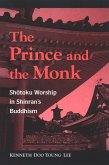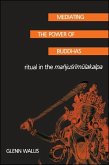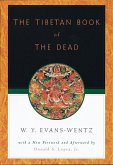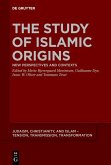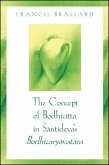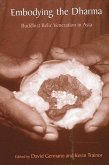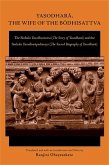O¿ Mäipadme Hu¿, perhaps the most well-known of all Buddhist mantras, lies at the heart of the Tibetan system and is cherished by both layman and lama alike. This book documents the origins of the mantra, and presents a new interpretation of the meaning of O¿ Mäipadme Hu¿, and includes a detailed, annotated precis of the Karä¿avyuha Sutra, opening up this important Mahayana Buddhist work to a wider audience.
The Karä¿avyuha- the earliest textual source for O¿ Mäipadme Hu¿-which describes both the compassionate activity of Avalokitesvara, the bodhisattva whose power the mantra invokes, and the mythical tale of the search for and discovery of the mantra. Through a detailed analysis of this sutra, Studholme explores the historical and doctrinal forces behind the appearance of O¿ Mäipadme Hu¿ in India at around the middle of the first millennium C.E. He argues that the Karä¿avyuha has close affinities to non-Buddhist puranic literature, and that the conception of Avalokitesvara and his six-syllable mantra is informed by the conception of the Hindu deity Siva and his five-syllable mantra Namä Sivaya. The sutra reflects an historical situation in which the Buddhist monastic establishment was coming into contact with Buddhist tantric practitioners, themselves influenced by Saivite practitioners.
Hinweis: Dieser Artikel kann nur an eine deutsche Lieferadresse ausgeliefert werden.
The Karä¿avyuha- the earliest textual source for O¿ Mäipadme Hu¿-which describes both the compassionate activity of Avalokitesvara, the bodhisattva whose power the mantra invokes, and the mythical tale of the search for and discovery of the mantra. Through a detailed analysis of this sutra, Studholme explores the historical and doctrinal forces behind the appearance of O¿ Mäipadme Hu¿ in India at around the middle of the first millennium C.E. He argues that the Karä¿avyuha has close affinities to non-Buddhist puranic literature, and that the conception of Avalokitesvara and his six-syllable mantra is informed by the conception of the Hindu deity Siva and his five-syllable mantra Namä Sivaya. The sutra reflects an historical situation in which the Buddhist monastic establishment was coming into contact with Buddhist tantric practitioners, themselves influenced by Saivite practitioners.
Dieser Download kann aus rechtlichen Gründen nur mit Rechnungsadresse in A, D ausgeliefert werden.
Hinweis: Dieser Artikel kann nur an eine deutsche Lieferadresse ausgeliefert werden.



